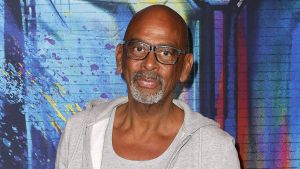Senate confirmation hearings for President Donald Trump’s most contentious nominees took center stage on February 1, 2025, with three individuals whose appointments have sparked significant debate within political circles. Kash Patel, nominated as FBI director, Tulsi Gabbard, proposed for Director of National Intelligence, and Robert F. Kennedy Jr., selected for Secretary of Health and Human Services, all faced tough questioning from senators.
The hearings unfolded at the Capitol, where Trump’s vice president, JD Vance, made headlines by urging Republican senators to support the nominees. Speaking with Fox News host Sean Hannity, Vance gave blunt advice, stating, "You don't get to make these decisions." He emphasized the importance of respecting the president’s choices, asserting the nominees deserve support and urging his colleagues to think about the votes they received from Trump's broader coalition.
Vance articulated the political dynamics at play, indicating the need for loyal support for the nominees who represent different facets of Trump’s political agenda. "The president has made his selections and the advice and consent power of the United States Senate should not be used to block people because you have one policy disagreement on one issue," Vance stated, reinforcing the notion of Trump’s mandate.
The nominees themselves entered the hearings under scrutiny. Kash Patel, nominated to lead the FBI, faced accusations of perpetuating false narratives about the 2020 elections. During his testimony, Patel combatively disputed claims made against him, asserting his words were being taken out of contexts.
Senator Amy Klobuchar pressed Patel about his past comments, especially those concerning the January 6 Capitol riot. "Tell them you’re proud of what you did," she urged, referencing the U.S. Capitol Police officers present. Patel’s responses were defensive, with him categorically rejecting any endorsement of violence against law enforcement.
Tulsi Gabbard, nominated for the intelligence position, encountered her share of challenges too, especially surrounding her past controversial trip to meet with Syrian President Bashar Assad. Senator Mark Warner, the top Democrat on the Intelligence Committee, questioned her ability to build trust necessary for the high-security role. Despite the rigor of the inquiry, Gabbard pushed back firmly, stating, "Senator, I’m offended by the question,” when pressed about Russia’s influence.
Conversely, Robert F. Kennedy Jr. was interrogated about his history with vaccine skepticism, with senators expressing grave concerns over his past positions. Senator Chris Murphy was one of the hard-hitting questioners, challenging Kennedy’s credibility on public health issues. “You’ve spent your entire career undermining America’s vaccine program,” Murphy said pointedly. Kennedy responded by insisting he would implement Trump’s policies if confirmed, particularly dodging direct commitments on controversial issues.
Throughout the hearings, the atmosphere was charged, reflective of the deeply divided opinions surrounding Trump’s administration. The three nominees are not expected to receive any Democratic votes, placing the onus squarely on Republican support for their confirmations. With the Senate’s Republican majority at 53-47, any signs of dissent among Republican senators could endanger the votes needed for confirmation.
The political stakes surrounding these appointments are high, not just for the nominees but for the future of Trump’s presidency. If the Republican senators break ranks and voice their opposition, it would signal potential fissures within the party, where loyalty to Trump continues to be tested.
Notably, Vance called attention to the significance of the appointments, stating, "Donald Trump won an imposing mandate because he got a different group of people to vote Republican than had ever voted Republican. We have to give those parts of the coalition some wins, too." He pointed out the importance of embracing candidates like Gabbard and RFK Jr., who may represent broader outreach efforts.
Looking at the bigger picture, these hearings signify not only the confirmation process at stake but also Trump’s attempt to consolidate his power within the Republican Party. Echoes of dissent, historical arguments about the Senate's role versus presidential prerogative, and the nominees' controversial pasts all encapsulate the day’s significant political drama.
Despite the prevailing pessimism surrounding confirmations for these three figures, supporters within the party are rallying. They believe Gabbard, Patel, and Kennedy can bring fresh perspectives to their respective roles, as they navigate public skepticism and scrutiny coming from across the aisle.
The confirmation hearings have not only captivated political observers but have also reignited conversations about the direction of the Republican Party under Trump’s influence. Party loyalty, ideological battles, and the role of independent thought among senators are right at the forefront during this unprecedented time.
Whether or not Gabbard, Patel, and Kennedy gain the needed votes remains to be seen, but their hearings have undoubtedly underscored the challenges facing Trump's administration and the enduring impact of his controversial picks.



